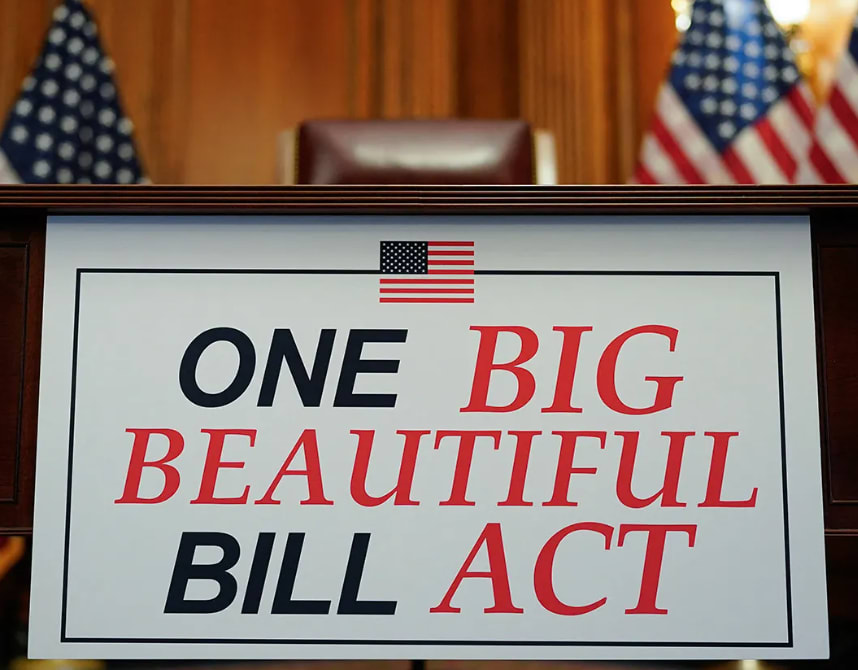
Update: Breakdown on the Big Beautiful Bill
The One Big Beautiful Bill Act was signed by President Trump on July 4, 2025. Speaker Johnson heralded this bill as the most conservative legislation in history. It makes major changes to many programs, like SNAP, and extends the tax cuts from the Tax Cuts and Jobs Act of 2017 which passed during the first Trump Administration
Breakdown on Bill
Missouri's Congressman Jason Smith said "House Republicans helped President Donald Trump secure a major victory for the American people by passing The One, Big, Beautiful Bill and sending it to the president’s desk. As Chairman of the Ways and Means Committee, I am proud to have led the effort on writing the tax provisions in this bill, which is the largest middle- and working-class tax cut in American history. The bill also includes both the largest cut in mandatory spending – $1.5 trillion – and biggest investment in border security in our nation’s history. This landmark legislation would not have gotten across the finish line without President Trump. Thanks to him, we are now entering a new Golden Age in America."
FROM the National Grocers Association Team:
NGA racked up many wins on the tax side, including permanently increasing the death tax exemption, permanentizing 100-percent bonus depreciation and the 199A pass-through deduction.
Republican lawmakers made permanency a key goal of this legislation, especially Senate Republicans, as many said that they would not vote for the bill unless the business tax cuts were made permanent.
This represents a significant improvement from the temporary versions of these provisions in the original Tax Cuts and Jobs Act, as well as a major win for businesses of all sizes across the country and creates certainty for years to come.
On the SNAP side, we fought hard to push back on the dramatic changes proposed to the program and successfully reduced the SNAP cuts from $300 billion to $180 billion. But the changes to SNAP in this bill will have a lasting impact on our industry.
Grocers will see a drop in the number of participants almost immediately as the updated work requirements take effect upon the bill's signing. Starting in 2028, states will be responsible for the partial cost of benefits; depending on the state’s ability to pay, SNAP may begin to look very different in each state.
The overall financial impact of the bill is significant over the next ten years, but Congress has used an alternative method to analyze the bill to make the impact look smaller. The bill decreases spending by the federal government by $1.2 trillion dollars and reduces taxes collected by $4.5 trillion, creating a net increase to the deficit of $3.3 trillion. The Senate also had a current baseline analysis completed to represent the impact of the bill as if the tax provisions were not going to expire. This alternate analysis found the bill saves $490 billion over the next five years.
Below is the link to very high-level breakdown of the bill by title and below that is a detailed analysis of the parts of the bill that directly impact grocers. All values are based on the impact over ten years
From MGA Member FORVIS/MAZARS:
"In the past few weeks, our teams have been keeping up with the latest on the One Big Beautiful Bill Act (OBBBA) and how it applies to the grocer industry, and with the bill being finalized, we have multiple resources that may be of benefit." The following are links to some articles we’ve published"
Attached is a handout that can be sent to members as well.